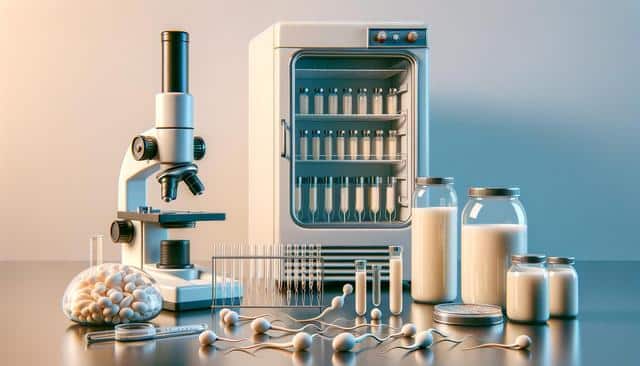Understanding Sperm Donation
Sperm donation is a significant option for individuals and couples looking to expand their families. It provides a solution for those facing fertility challenges, single individuals, and same-sex couples wishing to have children. The process involves a male donor providing sperm to a sperm bank or fertility clinic, where it is stored and later used in assisted reproductive technologies such as in vitro fertilization (IVF) or artificial insemination. The aim is to help intended parents achieve their dream of having a child. This method of family building is well-regarded for its success in helping create families that may not have been possible through traditional means.
The Sperm Donation Process
The path to sperm donation begins with rigorous screening processes to ensure the health and quality of the sperm. Potential donors undergo medical and genetic testing along with a thorough examination of their family health history. Once cleared, donors provide a sample, which is then analyzed for motility, count, and morphology. Approved samples are cryogenically stored for future use.
- Medical Evaluation: Comprehensive health check-ups and genetic testing
- Sample Collection: Sperm is collected in a sterile environment
- Analysis and Storage: Sperm is evaluated and preserved through freezing
This meticulous process ensures the highest standards of safety and quality, providing peace of mind for recipients.
Choosing the Right Donor
Selecting a sperm donor is a deeply personal decision that requires careful consideration. Recipients can choose from a pool of donors based on various criteria such as physical characteristics, education, and personal interests. Many sperm banks provide access to detailed profiles, allowing recipients to make informed choices. It’s important for recipients to consider factors such as genetic compatibility and personal values when making their selection. This choice is pivotal in shaping the future of the family and ensuring comfort and satisfaction with the decision.
Emotional and Ethical Considerations
Embarking on the journey of sperm donation involves navigating a range of emotional and ethical considerations. Potential parents often contemplate the implications of using donor sperm, including the potential for future contact with the donor and the child’s understanding of their biological origins. It is advisable for recipients to consult with counselors or support groups to address these aspects. Ethical considerations also involve ensuring that donors are fully informed and consent to the use of their genetic material, safeguarding the interests of all parties involved.
The Impact of Sperm Donation
Sperm donation has a profound impact on individuals and families by offering an opportunity to overcome biological limitations in building a family. It fosters inclusivity by allowing diverse family structures to thrive. Many families who have benefited from this option express gratitude for the chance to experience parenthood. The process not only helps those directly involved but also contributes to a broader acceptance and understanding of non-traditional family dynamics in society. Sperm donation is renowned for its positive influence, providing a pathway to parenthood for those who might otherwise face insurmountable challenges.
Conclusion
Sperm donation plays an essential role in supporting family building, offering a viable reproductive option for many. By understanding the process and considerations involved, individuals and couples can make informed decisions that align with their aspirations and values. Whether it is through careful donor selection or addressing ethical concerns, the journey is unique to each family. Ultimately, sperm donation opens doors to parenthood, making the dream of having a child a reality for a diverse array of families.
